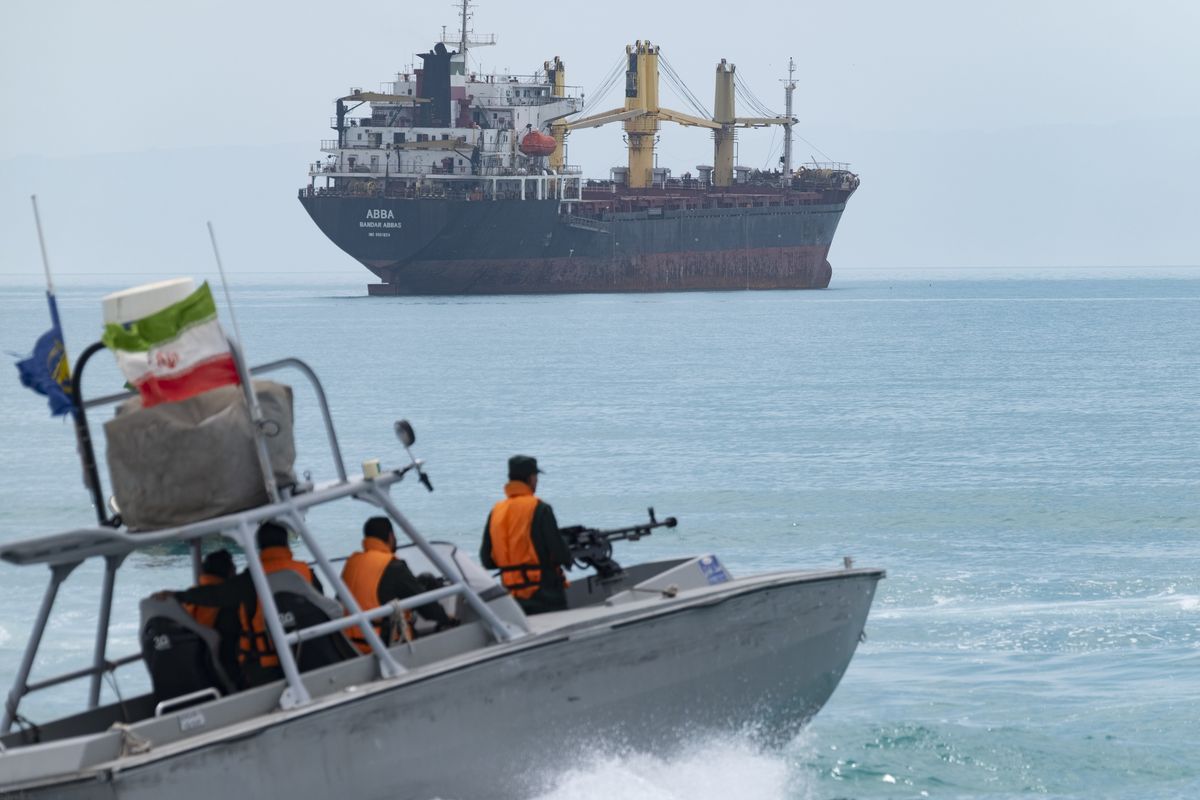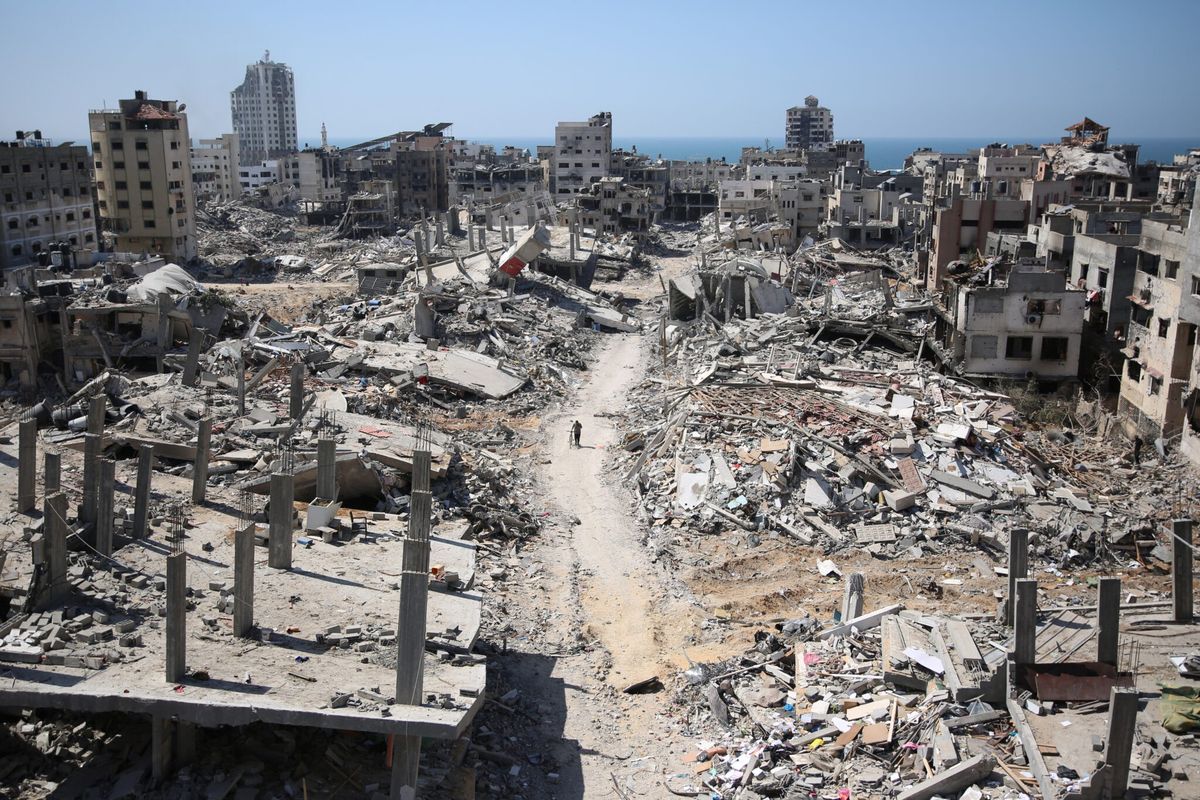The Cipher Brief sat down with Robert Richer, former Associate Deputy Director for Operations at the CIA, to discuss impending changes atop the Hamas leadership and the potential for a restart of Israeli-Palestinian peace negotiations. With peace talks “dead in the water” and living conditions broaching unbearable in the Gaza Strip, there is “internal dissent within the Gaza side” says Richer.
The Cipher Brief: What is the current state of relations between Hamas and Fatah? What impact does the current state of Palestinian politics have on potential peace negotiations with Israel?
Rob Richer: There are basically two sides of the story: Fatah and the Palestinian Authority (PA) on one side and Hamas on the other. The PA area, or the West Bank, is relatively prosperous—much more prosperous than Gaza. People in the West Bank have the ability to travel a bit more freely, the area has much better infrastructure and social services, and the government has much of the money that was left over in terms of development and aid.
Gaza, because of Hamas’ involvement in attacks against Israel, is basically a ghost town. There is very little business development and almost no way to get infrastructure improvement materials into the country due to the Israelis strong control over what is imported into that area – and rightly so because some of that material has been used to create rocket bombs, missiles, and tunnel infrastructure.
Gaza is also starting to struggle because Egypt has made a commitment to stop the tunnels crossing into Egypt, which provided a key alternative way for materials, such as food, batteries, and other things important to the populous, to enter into Gaza. With Egypt closing off the tunnels, it has become increasingly difficult to transport these goods into Gaza.
There is internal dissent within the Gaza side, and there is also some animosity from Gazans who look at the people in the West Bank and see that they are not suffering. The dialogue between the two sides is ugly. Hamas, which basically means the Islamic Resistance Front, does not identify as a moderate political party. They see Israel as an enemy, and they see people who want to “appease” Israeli as enemies, and that includes PA President Mahmoud Abbas. Further, because of the separation of the two entities, there is almost no infrastructure or commerce connectivity, and it is very much polar opposites when you go to both places.
Hamas is smart, especially as more and more people have become frustrated. They have a political machine that reflects the Hezbollah political and media machine. They’ve won the hearts and minds of the people in Gaza, and everyone believes that the problem is Israel and the world—they are all against “us.” While the Gazans are miserable and have very little infrastructure and day-to-day support, they are united, and they see themselves as distant cousins from the Palestinians in the West Bank. They can’t see a way forward with Israel.
TCB: There have been reports that Hamas’s longtime leader Khaled Mashal will be stepping down from his leadership post. How will this impact the group moving forward?
RR: Mashal has been slowly losing influence. He lives in Qatar, may be viewed as a tool of the Qatari government, and has become less identifiable to the people on the streets of Gaza. So there was an internal push for change.
There are others, such as Muhammad Dahlan, who believe that they speak stronger on behalf of Gazans and can take a leadership role that can bridge the two camps, Gaza and the West Bank. Dahlan is a chameleon and changes his colors whenever he can, and he says what the other party wants to hear.
But Hamas’ brand is not going to change, because the factors that created the brand – the isolation, the embargos on the Israeli side, the restrictions – are not going away. If anything, the frustration is going to get worse, and I think we are probably just months away from Hamas becoming much more offensive in taking actions against Israel. They’ve held off except for small, rocket attacks and individual attacks, where someone with a knife takes their frustration out. That frustration of one or two Palestinians attacking a random Israeli are more symbolic, but they are symbolic of the dissent and frustration on the part of the average Palestinian. That’s going to grow. Hamas is smart, and they are going to run on that.
TCB: What is Hamas’ level of influence in the West Bank?
RR: While there is discontent with Abbas’ leadership and the failure of the peace process to go forward, most West Bankers don’t blame where they are today on the Palestinian leadership. They don’t see it as an issue. Until about two years ago, there was a movement and an increase in people who supported and aligned themselves with some of what Hamas was saying; that people in the West Bank were selling out their heritage.
I think what has changed is that the Israelis have been really smart in the West Bank over the last two years. The people who they can trust and who they are willing to deal with, they have helped them, in part, economically prosper.
What’s going on in Palestine right now, in the West Bank and Gaza, is the tale of two cities: some who have something, and some who have nothing. The people who have something, primarily those in the West Bank, really have no hope that there is ever going to be a Palestinian state and have no hope that they can change that by violence. Therefore, they are willing to make some accommodations so that they can survive, grow, and have a future. It’s not to say they are walking away from their dream, but it’s just to say they are being realistic that it may not happen in their lifetime.
The people in Gaza see resistance as something they have to use if they want to have something in their lifetime. So you have a tactical movement, which is Hamas, living in a war zone, living for a fight everyday because that’s who they are, a resistance movement. Then you have the Palestinians in the West Bank saying, “Look, we need to live with what we have. Hopefully it will change over time, particularly when Netanyahu is gone, but hitting our heads against a stone wall is only going to hurt our heads.” So it really is a tale of two cities in one country.
TCB: What is Hamas’ current state of relations with Egypt?
RR: It’s minimal. The Egyptians made a commitment to destroy the tunnels crossing from Gaza into Egypt, and they have destroyed most of them. They are building walls down into the ground to help stop the building of future tunnels, and they are punishing Egyptian traders who deal and bring things to the border for people in Gaza.
Egyptian President Abdul Fatah al-Sisi understands the threat posed by the Muslim Brotherhood (Hamas’ parent organization) and also the threat in the Sinai and other places posed by extremist groups. The Egyptians also believe that some of the extremists were receiving support from the Gaza side. While it may be a minimal concern right now, Egypt sees no interest in thumbing their nose at Israel, and they see really no benefit to taking a laissez-faire approach to the tunnels.
TCB: What are your observations about the current state of peace talks between the Israelis and the Palestinians? How do the Israeli’s view the peace process at the current moment?
RR: In terms of the current state of the peace process, it’s dead in the water. The Russians getting involved just a few months ago gave a small flicker of hope that there might be movement. There was talk about a meeting in Moscow with Palestinian Authority (PA) President Mahmoud Abbas and Israeli Prime Minister Benjamin Netanyahu, but that really hasn’t gelled and is basically now discounted by both parties. That effort was probably Russia just trying again to get involved in the Middle East and be a player like it is in Syria, where its real efforts are.
The peace process is going nowhere, and it’s the fault of all parties involved. The Israelis continue to build settlements, and Netanyahu has not been stopping them. There is a drive right now to establish settlements that will actually divide the West Bank between north and south, which will make any type of Palestinian state almost impossible to have continuous borders. It’s almost like dividing north and south Palestine into an East and West Berlin, with the development of 9,300 new settlement homes in the Shiloh area.
What was the big hammer over the years for the peace process was U.S. security aid to Israel. The U.S. just committed to a $38 billion aid package for the next 10 years, and it’s all security assistance. That was given with no direct accountable linkage to pushing the peace process forward. So we have no hammer. The Israelis don’t need our economic support, and they don’t need U.S. aid as we provide other countries that depend on us. It’s all security assistance, and they got it. So the U.S. has taken that hammer away.
TCB: If the peace process is eventually started up again, will Hamas play a role in the negotiations?
RR: Hamas is going to do what it has done in the past. We’ve had dozens of meetings over the last couple of years and nothing meaningful has come out of those discussions. Hamas was actually in those sessions, let the Abbas government take the lead, and didn’t really try to undermine them. They had a wait and see attitude, and even after nothing progressed, they said they knew this was going to happen.
If someone were to jumpstart this, and Hamas thought it was a potential win and that something could happen, I think the group would be behind the scenes working with Fatah, because they want to protect their own interests. Everyone wants their people to prosper. But it will have to be a real effort, and as of right now, no one sees a real effort while Netanyahu is in power, while the current American administration is in play, and with all that’s going on in Syria. I think Hamas will pooh-pooh anything that happens, if it happens, in the next six to eight months.
TCB: What should we expect to see in the short-term?
RR: If you look at the level of attacks and violence that Hamas directs, they’ve been sustaining it as low as they possibly can. The Hamas mindset right now is, “the world is no longer watching us; the world no longer cares about us. If we do something stupid, the Israeli’s are going to bomb us, and just like the last time, the world is not really going to do anything. So we need to wait for the stage to change if we are going to leverage our violence, offensive capabilities, or anything else.”
We are going to see the status quo remain until at least next summer, when Hamas sees what happens once a new American Administration is in place, what happens with the Israeli leadership, and what happens in Syria, because right now, the world doesn’t particularly care. The Russians are a spoiler on whatever happens in the peace process. The Russians aren’t dumb. They are going to leverage something for Assad in terms of getting something leveraged for the Palestinians by the U.S. So we are looking at the status quo and increasing frustration. We are going to see an increase in settlement building in violation of all the accords. At the same time, we are going to see an increase of deadly violence on the behalf of frustrated individuals or maybe some small groups of individuals from the Palestinian side.













